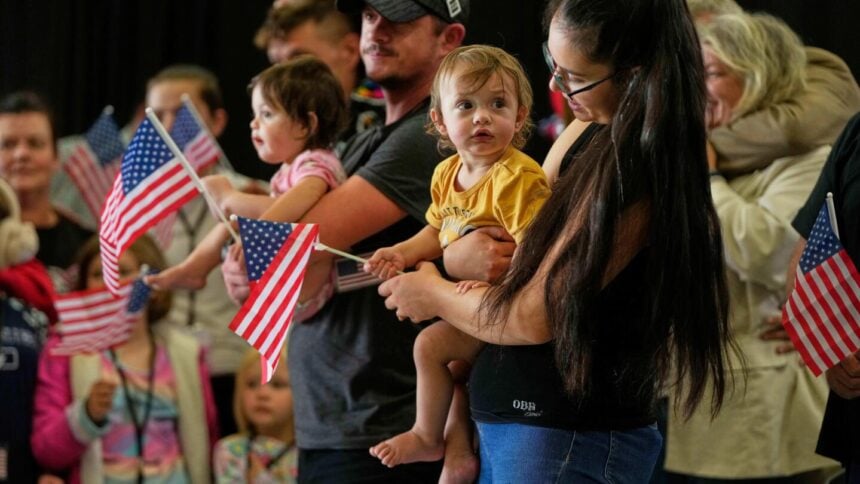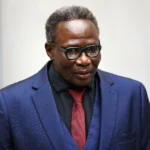Former U.S. President Donald Trump is reportedly considering slashing the number of refugees allowed into the United States this year to as few as 7,500 a record low with a significant portion of those spots expected to go to white South Africans. The move, still under review and not yet formally submitted to Congress, would mark one of the most dramatic shifts in modern U.S. refugee policy and has sparked alarm among humanitarian and rights organizations.
The proposed plan, confirmed by two officials familiar with internal discussions, comes amid intensified immigration raids across major U.S. cities and a broader push by the Trump administration to tighten entry into the country. Advocacy groups and lawmakers warn that the new cap could effectively freeze the resettlement process for tens of thousands of refugees who have already completed extensive security and background checks and are awaiting approval to enter the United States.
If finalized, the 7,500-refugee cap would represent a steep drop from the Biden administration’s 2024 target of 125,000 admissions the highest level set in decades and even from the already reduced numbers established during Trump’s first term. Under the proposed policy, a disproportionate share of refugee slots would be reserved for white South African farmers, whom Trump officials argue face discrimination and violence in their home country, a claim that the South African government has repeatedly rejected.
Krish O’Mara Vignarajah, president and CEO of the refugee resettlement group Global Refuge, condemned the proposal, saying it “would transform a long-standing humanitarian program into one that overwhelmingly favors a single ethnic group.” She added that the shift undermines the United States’ historic role as a safe haven for those fleeing persecution based on race, religion, or political beliefs.
Trump first suspended the U.S. refugee admissions program on his first day in office in January, citing the need for enhanced vetting. Since then, the flow of refugees into the country has slowed to a trickle, with only a handful admitted under ongoing court orders or through the special Afrikaner refugee program announced in February. That initiative, targeting white South African farmers, has been widely criticized as racially selective and politically motivated.
White House officials, speaking on condition of anonymity, said that the refugee ceiling will not be finalized until the administration consults with Congress a step required by law. However, with the ongoing federal government shutdown, no refugees are expected to be admitted until operations resume, further deepening the uncertainty facing tens of thousands of people who have already been approved for resettlement.
Mark Hetfield, president of HIAS, the Jewish refugee resettlement organization, said that roughly 128,000 refugees have been cleared to come to the U.S. but remain stranded abroad. “It’s unconscionable that the administration would favor one group while leaving so many others, including persecuted minorities in Iran, in limbo,” Hetfield said. “How can a government that claims to uphold religious and humanitarian values justify this kind of discrimination?”
Lawmakers from both chambers of Congress have criticized the administration’s delay in submitting the required refugee admissions report by the September 30 deadline. In a joint letter, Democratic leaders on the House and Senate Judiciary Committees accused the White House of “openly defying federal law” and warned that “thousands of refugees who have already passed rigorous vetting requirements are being forced to wait indefinitely while the administration carves out racial exceptions.”
The 7,500 figure under consideration is significantly below what refugee advocates had expected, with early estimates in September suggesting a cap of around 30,000. The administration’s sudden shift downward has fueled speculation that the move is driven by political motives rather than security concerns, particularly as Trump intensifies his hardline immigration rhetoric ahead of the next election cycle.
For many observers, the proposal signals a fundamental redefinition of U.S. refugee policy from one rooted in humanitarian principles to one increasingly influenced by racial and political considerations. Human rights experts warn that such selective admissions could undermine America’s global reputation as a defender of the oppressed and embolden other nations to pursue exclusionary refugee practices.
As the government shutdown drags on and immigration raids continue nationwide, thousands of refugees remain trapped in uncertainty, waiting for a decision that could determine whether they find safety in the United States or remain stranded in danger abroad. Meanwhile, critics say that prioritizing white South Africans over refugees from war-torn regions like Syria, Sudan, or Afghanistan marks a troubling turn in America’s moral leadership on













Leave a comment